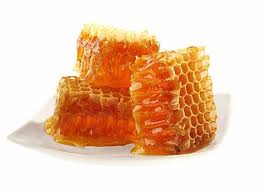Imam Bukhari interrelated al-Ruqyah by reciting the verses of the Qur’an with du`a. Its concept purely spiritual, not in any way medical, but it had psychological therapy consequences. Commonly, when a man was sick, the righteous Muslim prayed over him several du`a, however, it is possible that when a man was sick he himself made offering and prayed for healing, addressing himself directly to God, asking for healing by calling his names and attributes. The followings are among the du`a which the Prophet (s.a.w) and his companions accustomed to recite, whenever he visited the sick or if a sick person was brought to him. Imam Bukhari gives the example that Anas b. Malik was complained by Thabit about some chronic pain he suffered.
On that Anas said, "Shall I treat you with the Ruqya of Allah's Apostle?" Thabit said, "Yes," Anas recited:
Allahumma rabb al-nas mudhhab al-ba`s ishfi anta al-shafi la shafi illa anta shifa`an la yughadiru saqama. (O Allah! The Lord of the people, the Remover of trouble! (Please) cure (Heal) (this patient), for You are the Healer. None brings about healing but You; a healing that will leave behind no ailment).
Sometimes, while the Prophet (s.a.w) recited du`a, he was touching and putting his hands on the face, eyes and other parts of sick body and recited:
Allahumma rabb al-nas adhhab al-ba`s washfihi wa anta al-shafi la shifa`a illa shifa`ka shafi` la yughadiru saqama (O Allah, the Lord of the people! Remove the trouble and heal the patient, for You are the Healer. No healing is of any avail but Yours; healing that will leave behind no ailment).
The wife of Prophet, A`ishah (r.a.) reported that the Prophet (s.a.w) used to recited the following du`a as ruqyah:
Imsahi al-ba`s rabb al-nas, biyadika al-shifa` la kashif lahu illa anta (Remove the trouble, O the Lord of the people, the cure is in Your Hands, and there is none except You who can remove it (the disease).
Bismillah tarbatu ardana, bariqatu ba`dana, yashfi saqimuna bi`idhni rabbina (In the Name of Allah The earth of our land and the saliva of some of us cure our patient).
Bismillah tarbatu ardina, wariqatu ba`dina, yashfi saqimuna, bi’idhni rabbina (In the Name of Allah" The earth of our land and the saliva of some of us cure our patient with the permission of our Lord." with a slight shower of saliva) while treating with a Ruqya).
In another interesting occasion, Ibn Mas`ud related that the Prophet (s.a.w) was performing the prayer (salah), and while he was in sujud (prostration), a scorpion stung him on the finger and then surried away. The Prophet (s.a.w) said: “Many the curse of Allah be on the scorpion, which has not respect for the Prophets, nor any one else.” He was then treated with draughts of salt and water, and they soaked the place where he had been stung in salt and water. Then, they recited Surah al-Ikhlas and the last two surah (surah nos. 113 and 114), until the swelling went away.
Conclusion
It is obvious that the treatment of disease in Islamic medical system comes in several forms. It is not just physical i.e., by using drugs, but also in the form of ruqyah with the verse of the Qur’an and Du`a. The latter is spiritual, mind and emotional approach, which is suitable to be treated the disease caused by Jinn and devil, known to some people as supernatural powers. In discussion ruqyah in Islamic Medical system, it is found that the medicine of the Prophet (al-tibb al-nabawi), within its own orbit and time, is logical. The premise may seem strange, but once it is scrutinized and known, its conclusion is reached by reasoning. Al-Ruqyah, with the Qur’an and the Du`a (the Prayer) upon the patient, for instance, is rational approach since it is used after knowing the cause of disease.




































